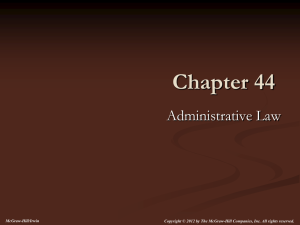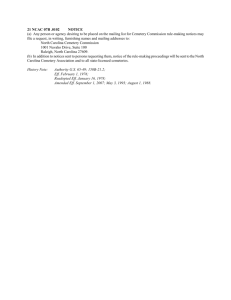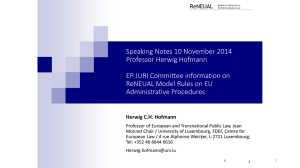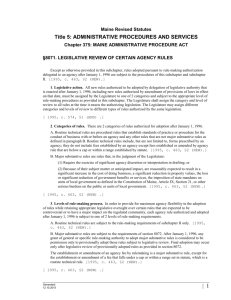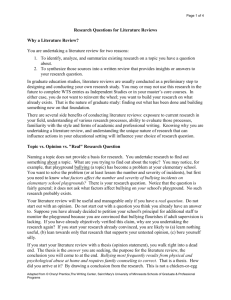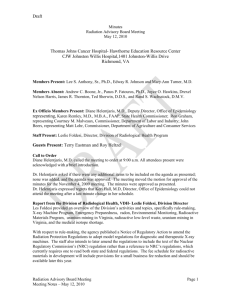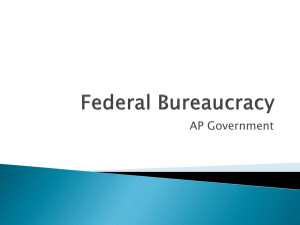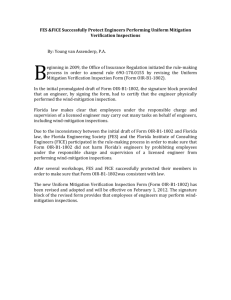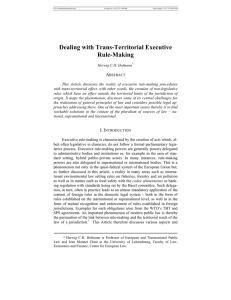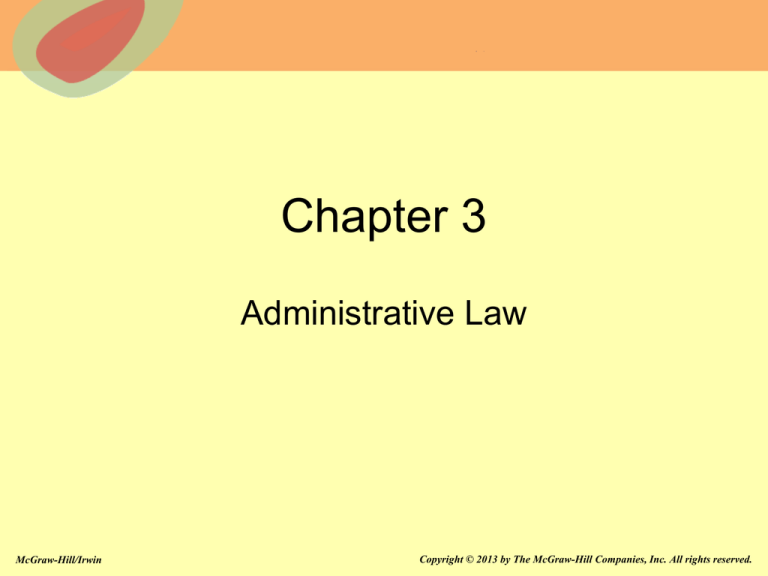
Chapter 3
Administrative Law
McGraw-Hill/Irwin
Copyright © 2013 by The McGraw-Hill Companies, Inc. All rights reserved.
Introduction to Administrative Law
• Administrative Law: Consists of substantive and procedural
rules created by administrative agencies
• Administrative Agency: Any governmental body of the city,
county, state or federal government
-Referred to as the unofficial “fourth branch of government”
-First federal administrative agency: Interstate Commerce
Commission (ICC)
-Created by Congress through “enabling legislation”, a
statute that specifies names, functions and specific powers
of agency
-Investigative powers include power to issue
subpoena/subpoena duces tecum
• Administrative Law Judge: Presides over administrative
hearing; may attempt to encourage parties to settle, but has
power to enter binding decision
3-2
Types of Administrative Agencies
• Executive Agency: Generally within executive branch of
government, under a “cabinet-level” department; also referred
to as “cabinet-level” agency
-Examples include Federal Aviation Agency (FAA) and
Food and Drug Administration (FDA)
• Independent Agency: Governed by board of commissioners
appointed by president, with “advice and consent” of U.S.
Senate
-Examples include Consumer Product Safety Commission
(CPSC) and Equal Employment Opportunity Commission
(EEOC)
• Hybrid Agency: Characteristics of an executive and
independent agency
-Example: Environmental Protection Agency (EPA)
3-3
Administrative Procedures Act (APA)
Imposes specific guidelines on agency rule-making:
• Informal Rule-Making (“Notice-and-Comment” Rule-Making):
Proposed rule published in Federal Register, with opportunity for
public comment
• Formal Rule-Making: Publication of proposed rule in Federal
Register, then formal public hearing (including complete transcript)
• Hybrid Rule-Making: Combines best features of formal and
informal rule-making; proposed rule published in Federal Register,
with opportunity for public submission of written comments, then
informal public hearing
• Exempted Rule-Making: Agency decides whether public
participation allowed; includes rule-making proceedings with
regard to “military or foreign affairs”, “agency management or
personnel”, and “public property, loans, grants, benefits, or
contracts” of an agency
3-4
Stages of Informal Rule-Making
• Agency drafts rule in consultation with interested parties
• Proposed rule published in Federal Register
• Interested parties can file written comments on written draft
within 30-day period from publication in Federal Register
• Final draft of rule published in Federal Register 30 days
before it takes effect; statement of its purpose and costbenefit analysis must accompany its publication
• Agency receives feedback from interested parties during
30-day period and makes decision on whether final draft
should be rewritten. If not, it becomes law
3-5
Administrative Procedures Act (APA)
(Continued)
• Interpretive Rules: Rules that do not create any new
rights/duties; instead, a detailed statement of agency’s
interpretation of existing law, and the steps a party must
take to comply with existing law
• Policy Statements: General statements about directions of
agency regarding rule-making or enforcement activities; no
binding impact; do not directly affect legal
rights/responsibilities
• Regulated Negotiation (“Reg-neg”): Mediated agreement
(involving competing interest groups) on agency rulemaking
3-6
Limitations on Agency Powers
• Political
• Statutory
• Judicial
• Informational
3-7
Freedom of Information Act (FOIA)
• Requires that federal agencies publish in
Federal Register places where public
can access agency information
• Any individual or business may make a
FOIA request
• Information may be obtained regarding
how agency acquires and spends its
money
3-8
Freedom of Information Act (FOIA)
(Continued)
• Statistics and other information collected by agency on
particular topics available
• Citizens entitled to any records government has about
them
• Exemptions:
-National Security
-Internal Agency Matters (Example: Personnel
Issues)
-Criminal Investigations
-Financial Institutions
-Individual’s private life
3-9
Government in Sunshine Act
• Requires that agency meetings be open to public if
agency headed by collegiate body (i.e., two or
more persons, with majority appointed by
president upon “advice and consent” of Senate)
• Such agencies must keep records of closed
meetings
3-10
Privacy Act
Federal agency may not disclose
information about an individual to other
agencies/organizations without that
individual’s written consent
3-11

